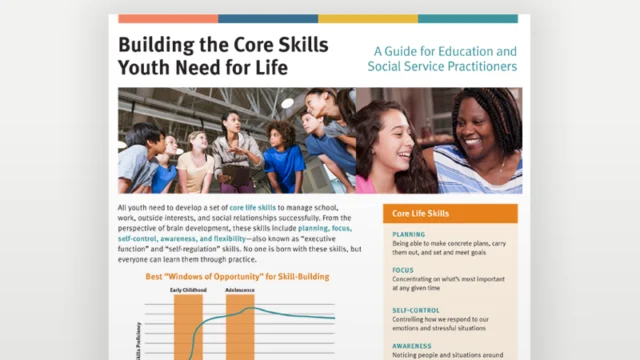Building the Core Skills Youth Need for Life: A Guide for Education and Social Service Practitioners

All youth need to develop a set of core life skills to manage school, work, outside interests, and social relationships successfully. From the perspective of brain development, these skills include planning, focus, self-control, awareness, and flexibility—also known as “executive function” and “self-regulation” skills. No one is born with these skills, but everyone can learn them through practice.
We know that early childhood is a critical time for the brain, when connections are being made that become the foundation for a child’s future health, learning, and behavior. Adolescence is also a vital “window of opportunity” for building core life skills—and for practitioners to provide support.
This guide for practitioners who work with adolescents explains the science behind the core life skills that youth need, what affects the development of these skills, and how practitioners can help, including:
- 5 Ways to Help Youth Build Their Core Life Skills
- How Stress Affects Developing Core Life Skills
- 5 Ways to Deliver Services That Reduce Stress
For more on adolescent development:
- Understanding the Adolescent Brain series by the State of Washington Office of Superintendent of Public Instruction
- The Adolescent Brain: A second window of opportunity – A Compendium by the UN Children’s Fund
- The Center for the Developing Adolescent
This material was generously translated into Slovak by the Carpathian Foundation.